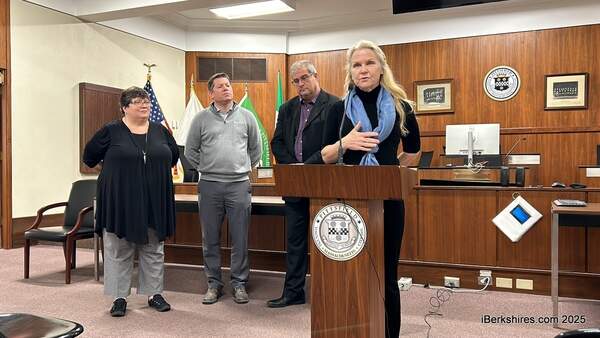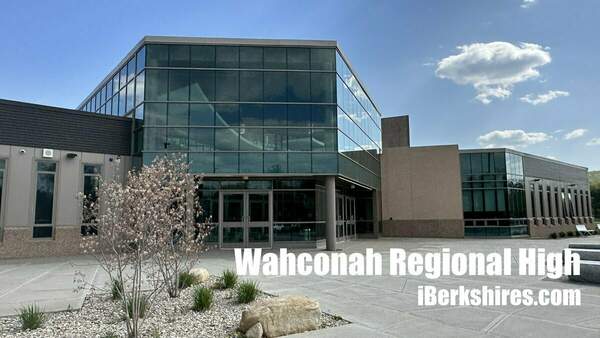
BRPC Sees What State Economic Plan Means for Rural Communities
PITTSFIELD, Mass. — The Berkshire Regional Planning Commission got a look at the state's 2023 economic development plan and what it means for rural communities.
Steven Ellis, the town administrator of Montague, serves on the state's Economic Development Planning Council as a "rural captain." He presented the plan on Wednesday to the commission's Comprehensive Economic Development Strategy Committee.
The Healey-Driscoll administration released its economic development plan "Team Massachusetts: Leading Future Generations" in December. The state Executive Office of Economic Development develops a plan at the start of each gubernatorial term to guide the state's economic development activities and investments during that term.
"The committee itself represented a broad range of interests and that included some municipal engagement but a lot of business industry, cabinet members were part of it, a couple of legislators and advocates from a few directions," said Ellis, who was appointed to the council last May.
"What was very clear was that they were really looking for a strong rural voice and I think that they approached me because I've had the opportunity to engage and advocate with state government and what is now EOED in particular through my role here in the town of Montague."
The 30-member council held regional listening sessions and sector-specific meetings and surveys with shareholders, businesses and organizations over the last year when Gov. Maura Healey took office. This feedback informed the economic development plan.
Ellis said the administration is "acutely" aware of the risks that rural areas face relative to population decline and loss of talent to other regions. There was an emphasis on the understanding that infrastructure is a critical problem right now.
"Often the conversation is focused on roads and bridges and I really worked hard to make sure that that conversation also paid homage to the need for water, wastewater, and those types of utility investments as well," Ellis added.
"And rural communities were called out as part of the fundamentals at the ground level for this plan."
Of the state's 351 municipalities, 181 are considered rural and small towns and they make up nearly 60 percent of the land area. On the other end, rural communities only hold about 13 percent of the population.
Last year, the administration announced the newly created director of rural affairs within the EOED to support these communities and help with economic development. Anne Gobi, of Spencer, a former state senator, spoke at BRPC's annual meeting last year and emphasized the importance of hearing what these communities need from the state to better themselves.
The plan calls for unlocking funding to improve rural infrastructure such as roads and water/sewer capacity, creating a rural economic designation to increase opportunities for private funding and visibility, and reducing the burden of accessing funds for rural communities.
One of the strong points made during planning was that there is an "overemphasis" on the total impact of how many dollars of private investment are being leveraged. Oftentimes, this scale is a disadvantage for rural communities.
One of the Rural Policy Advisory Commission's goals is to create a "mini gateway city" or similar program to help facilitate funding opportunities.
"I don't know that there has been as strong of focus in past economic development plans on the needs of rural communities," Ellis said.
He added that "strong rural communities are essential and that we need to find ways to stabilize and frankly reinvigorate and add youth and balance to our demographics from a population standpoint because we run the risk of getting into a vicious cycle where businesses are disinclined to invest or stay in rural communities as our workforce begins to wane."
Ellis said rural communities need "quick wins."
"We can't always wait for projects that are going to develop over the course of multiple years and that means that we have to reduce burdens to access funds," he said.
"Sometimes quite frankly, you all may have experienced that or you may not have, we have projects that require engineering and design levels that are significant investments that rural communities might struggle to make in advance of actually knowing that we can ever realize the funding to make the project happen."
Senior Planner Wylie Goodman said BRPC is working with 14 communities in the county on digital equity plans and asked if there were discussions about this topic.
"A lot of our rural communities are unfortunately in a position where we appear to be served, many many of our communities have pretty high rates of coverage but we are also in, in many cases, monopoly communities where Spectrum Charter is our major internet provider and there is not a lot of choice and options for people," she said, adding that the federal Affordable Connectivity program is winding down and means a lot of low-income people will lose affordable internet.
Goodman said municipal broadband is not necessarily in the cards for small communities — and even Pittsfield — and asked how critical the state sees keeping pace with broadband technology's development.
Ellis said internet was mentioned as a part of the ability to stabilize the population and maintain the workforce in rural communities.
Tags: economic report,















